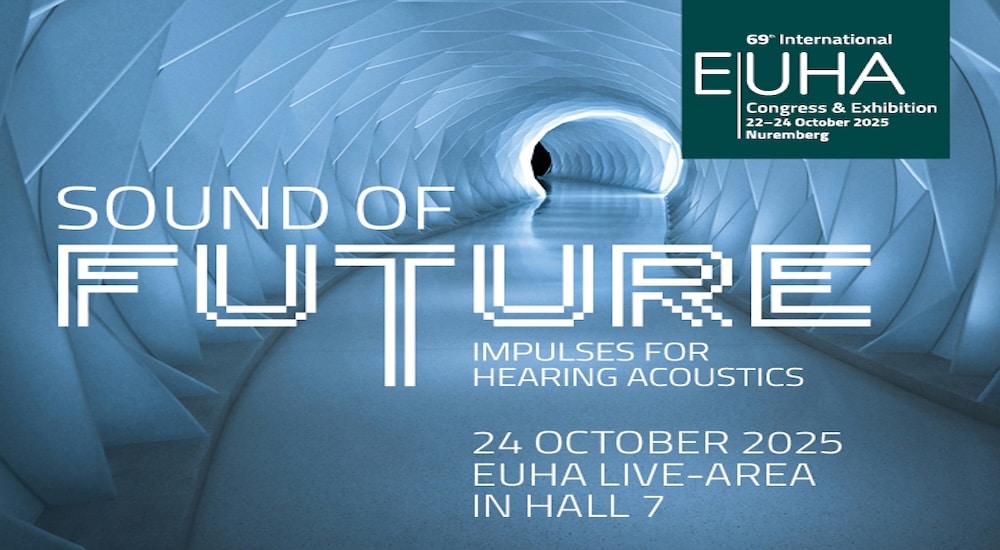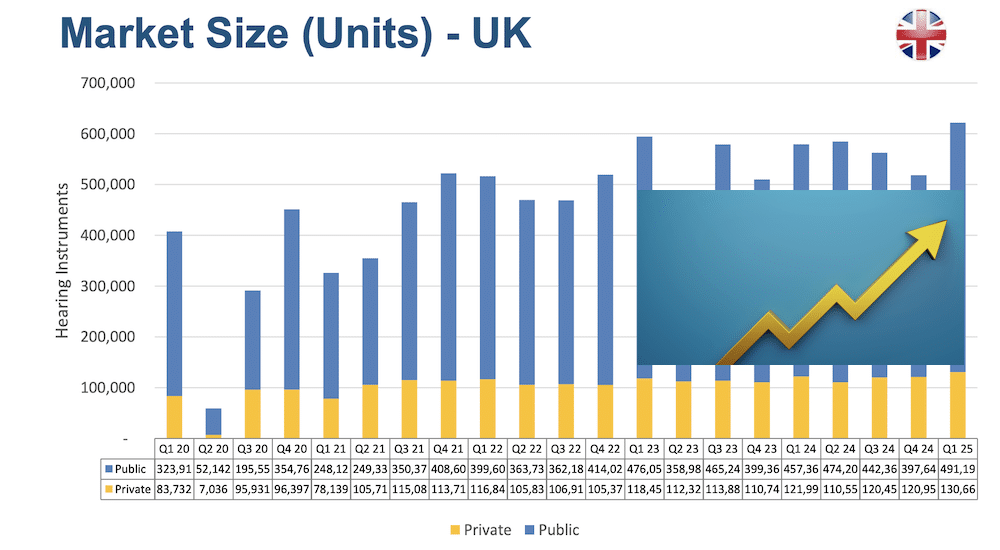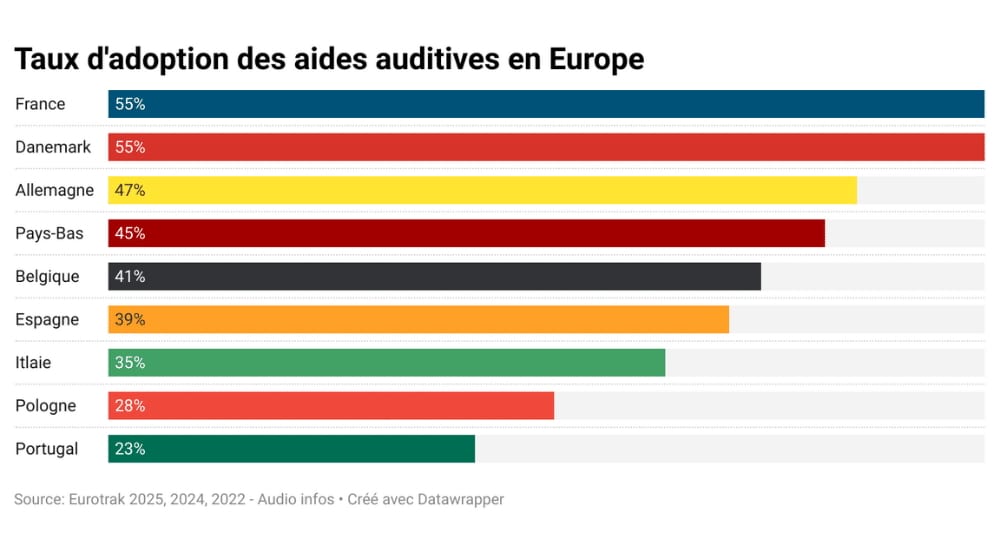OTC devices not catching on with US public, poll suggests
A US national poll commissioned by the American Speech-Language-Hearing Association (ASHA) found that only two percent of American adults over 40 with hearing difficulties said they have purchased an over-the-counter (OTC) hearing device.

The published poll was carried out in June this year, eight months after certain hearing aids became available to US adults for mild and moderate loss without a prescription (October 17, 2022), and the results are being taken as evidence that the OTC explosion many predicted for the market has at least a very damp fuse.
Early days, perhaps, but the poll recorded that only four percent reported that they are likely to purchase OTCs in the next year.
The poll, conducted by YouGov, questioned 2,228 U.S. adults ages 40 and older. It highlights the high level of resistance to hearing treatment, even among the more-than-half of American adults (56%) who acknowledged lacking excellent hearing; only eight percent had been treated. Nearly half (48%) of those with untreated hearing difficulties let their symptoms persist for more than two years. Yet nearly one third (30%) of those with hearing difficulties reported a negative impact on their quality of life.
The primary reason for not seeking help was the belief that the hearing difficulties being experienced weren’t “bad enough” to warrant care, ASHA revealed.
The poll findings were published amidst strong messages from an ASHA demonstrably concerned that the public is not being educated on OTCs, and only poorly on hearing health in general. The Association underlines that just 16% of poll respondents correctly identify that OTC hearing aids are not for both children and adults—”they’re for adults only”. And less than half of those polled perceive that there is a difference between sound amplifiers and hearing aids.
Misleading advertisements
Criticising OTC ads for “failing to prominently mention whom they are exclusively for”, ASHA claims the adverts “falsely equate drugstore off-the-rack reading glasses with the devices.”
“The glasses assist with light refraction for the eye. OTCs play a bigger role. They deliver sounds to a disordered auditory system, and doing that is more complex than what is happening with off-the-rack reading glasses. It is not simply a matter of increasing the volume of sound,” says ASHA in its poll announcement.
In the poll, nearly half of respondents with hearing difficulties equated reading glasses with OTCs, and more than half of that group didn’t realise that hearing can be damaged if an OTC is over-amplified.
“Hearing health must be a priority, not something that is taken lightly, neglected, or treated inappropriately or without clear and complete information,” said Janice R. Trent, ASHA Vice President for Audiology Practice. “We will continue to educate the public and professionals about OTCs as well as [about] the importance of hearing health and taking prompt action when hearing difficulties arise.”
Source: ASHA


